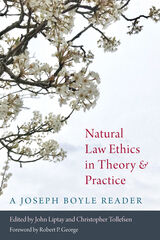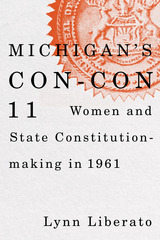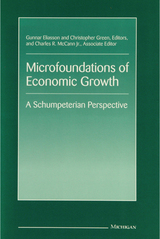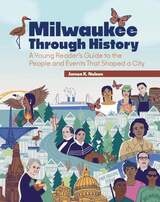
A concise and accessible introduction to natural law ethics, this book introduces readers to the mainstream tradition of Western moral philosophy. Building on philosophers from Plato through Aquinas to John Finnis, Alfonso Gómez-Lobo links morality to the protection of basic human goods — life, family, friendship, work and play, the experience of beauty, knowledge, and integrity — elements essential to a flourishing, happy human life.
Gómez-Lobo begins with a discussion of Plato's Crito as an introduction to the practice of moral philosophy, showing that it requires that its participants treat each other as equals and offer rational arguments to persuade each other. He then puts forth a general principle for practical rationality: one should pursue what is good and avoid what is bad. The human goods form the basis for moral norms that provide a standard by which actions can be evaluated: do they support or harm the human goods? He argues that moral norms should be understood as a system of rules whose rationale is the protection and enhancement of human goods. A moral norm that does not enjoin the preservation or enhancement of a specific good is unjustifiable. Shifting to a case study approach, Gómez-Lobo applies these principles to a discussion of abortion and euthanasia. The book ends with a brief treatment of rival positions, including utilitarianism and libertarianism, and of conscience as our ultimate moral guide.
Written as an introductory text for students of ethics and natural law, Morality and the Human Goods makes arguments consistent with Catholic teaching but is not based on theological considerations. The work falls squarely within the field of philosophical ethics and will be of interest to readers of any background.

Part One: Articulating a Theory of Natural Law contains three sections in which Boyle defends the reality of free choice and the view that the basic reasons for action, or first principles of natural law, are incommensurable in goodness. Boyle identifies the basic moral standard for choice and action, and develops an account of human action that elucidates the important role played by intention and double effect in their moral evaluation.
The essays in Part Two: Natural Law Theory and Contemporary Moral Problems demonstrate the strength and scope of Boyle’s natural law account, as he brings it to bear upon just war theory, property and welfare rights, and issues in bioethics. The essays in bioethics address the difficult question of whether it is appropriate to tube-feed patients in persistent vegetative state, and include an unpublished essay, “Against Assisted Death,” which he delivered as the Anscombe Lecture at The Anscombe Bioethics Centre in Oxford about a year before he died.
This volume also includes a Foreword by Princeton’s Robert P. George; an Introduction by the editors that highlights Boyle’s contribution to the development of the new classical natural law theory; and a bibliography of Boyle’s publications.
READERS
Browse our collection.
PUBLISHERS
See BiblioVault's publisher services.
STUDENT SERVICES
Files for college accessibility offices.
UChicago Accessibility Resources
home | accessibility | search | about | contact us
BiblioVault ® 2001 - 2025
The University of Chicago Press









